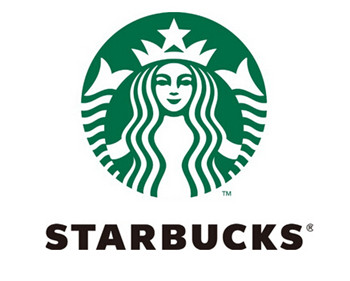(单词翻译:单击)

Those who zombie-walk into Starbucks for a caffeine fix are accustomed to a standard look for the baristas: simple black-and-white clothes under a green apron.
星巴克服务员向来是一身简单的黑白配再加上一条绿围裙。那些迈着僵尸步上门来找一剂咖啡因解脱的客人,对他们这身标准打扮也习以为常了。
But a new dress code unveiled by the coffee chain on Monday encourages a new sense of individualism, inviting workers to wear fedoras and beanies, to dye their hair and to incorporate accent ties and socks. The range of acceptable colors for shirts expanded to include gray, navy, dark denim and brown.
不过这家连锁咖啡店在周一公布的新服装规范,鼓励员工展现个人风格,欢迎他们在上班时戴软呢帽或无边软帽、染头发、搭配抢眼的领带和袜子。公司能接受的衬衫颜色也扩大到灰色、海军蓝、深色牛仔布蓝与棕色。
“We’re inviting you to bring your personal taste and handcrafted style to work,” Starbucks told workers in its new policy. “As ambassadors of the Starbucks brand, you should feel proud of your own look as you tie on the green apron.”
“我们欢迎你在工作时展现个人品味与手作风格,”星巴克在新的指导方针里告诉员工。“身为星巴克的品牌大使,你在系上绿围裙的时候,也该为自己的外表感到自豪。”
Don’t pin it all on millennials — but, yeah, millennials do prefer more relaxed dress codes, and experts say companies in all industries are increasingly loosening their sartorial standards in hopes of keeping workers happy.
别把这事都归结为千禧世代的作风──虽然千禧世代确实偏好更宽松的着装规定。专家也表示,各行各业的公司都在放宽服装标准,希望员工能保持心情愉快。
Younger employees would prefer to go to work with the same set of clothes they wear to hang out with friends, instead of having to buy a potentially expensive wardrobe just for business hours, said Daryl Pigat, a division director at OfficeTeam, a staffing service.
人力服务公司“办公间团队”(OfficeTeam)的部门总监达利尔‧皮加特(Daryl Pigat)说,年轻员工想穿着与朋友出去玩时的衣服去上班,而不是被迫去采购可能很昂贵、又只能在办公时间派上用场的服装。
Also, consider the business role models for millennials. Mark Zuckerberg, for example, often wears a hoodie, not a pinstripe suit.
此外,别忘了千禧世代的职场模范人物都是谁。譬如说马克‧扎克柏格(Mark Zuckerberg),他就常穿连帽休闲服,而不是细条纹西服套装。
In an OfficeTeam survey of 300 senior managers at American companies with more than 20 employees — it was released in June — half of the managers said employees dressed less formally than they did five years ago. Among workers, 18 percent said they would prefer a formal dress code, 31 said they would prefer business casual, 27 percent said they would like a casual dress code or no dress code, and 23 percent said it didn’t matter.
办公间团队对有20名以上员工的美国公司的300位高层管理者做了调查(结果于6月发布),其中有一半的受访者表示,他们员工的穿着和五年前相比已经没那么正式了。员工中则有18%的人表示希望有正式的着装规范,31%喜欢商务休闲装,27%喜欢穿便服或希望不要有什么服装规定,另外23%的人觉得无所谓。
Job seekers aren’t using dress codes as their driving force for picking an employer, but they are considering it while debating how they would fit in, Mr. Pigat said.
皮加特说,服装规定不是求职者拿来选择雇主的决定性驱力,不过当他们思考自己与公司文化是否契合时,就会把这件事考虑进去。
“Everything is becoming a little less formal and a little more personal,” he said. “Everyone has their own stamp on things, and they’re representing their own personal brand now in more ways than one — in social media and, certainly, in the way they present themselves with what they put on in the morning.”
“一切都在变得比较不那么中规中矩、比较个性化一些,”皮加特说。“大家会在各种事物上面打上个人印记,用许多方法来呈现个人品牌,比如透过社交媒体。每天一早穿上什么样的衣服,当然也是用来表现自我的方式。”
For employers, letting employees dress down at least some of the time has become an increasingly standard benefit. In a January survey of 3,490 human resources professionals by the Society for Human Resource Management, 59 percent said their companies allowed casual dress at least once a week, up from 55 percent in 2012. Forty percent of the companies allowed casual dress every day, up from 36 in 2012.
对雇主来说,让员工至少能偶尔穿得随兴点,已逐渐成为标准福利了。人力资源管理协会(Society for Human Resource Management)在今年1月对3490名人力资源管理从业者进行调查,受访者中有59%表示,他们的公司每周至少会让员工穿一天便服,这个比例在2012年只有55%。40%的公司允许员工每天穿便服上班,而在2012年只有36%的公司这么做。
In recruiting, companies may have to dress down to keep up, especially for a company like Starbucks that often hires younger employees.
在招聘中,公司可能得放宽穿着规定,才能跟得上需要,特别是像星巴克这类经常雇用年轻人的公司。
“That’s going to increase your ability to hire faster, and possibly retain employees,” said Edward Yost, an employee benefits expert at the Society for Human Resource Management. “Then you’re likely to see more consistent performance out of each one of those locations.”
“这么做会让你更快请到人,也可能更容易留住员工,”人力资源管理协会的员工福利专家爱德华‧尤斯特(Edward Yost)说。“这样,各处的员工表现都可能会更稳定。”
In 2014, Starbucks relaxed its conservative dress code to include untucked shirts, nose studs, shorts and skirts. The further loosening announced Monday had been tried at some locations, including one in Midtown Manhattan.
星巴克在2014年放宽了保守的着装规范,衬衫可以不必掖进裤腰,鼻钉、短裤、裙子也都被允许。周一宣布的更为宽松的规定已经在某些营业点试行过了,其中包括位于曼哈顿中城的一间分店。
“This new dress code is what partners have in their closets,” Mario Leon, the manager of the Manhattan location, said in a statement. “It just makes it so much easier. It just makes so much sense.”
“新服装规定让员工穿他们本来就有的衣服,”曼哈顿那间分店的经理马力欧‧莱昂(Mario Leon)在一份声明中表示。“让工作着装变得容易多了,也合理多了。”
The announcement was met with approval from some current and past baristas on Twitter.
星巴克这项新公告也在Twitter上获得了许多现任与前任员工的称许。
WHAT IT MEANS
新标准意味着什么
Starbucks’ new dress code encourages employees to incorporate their personal taste. But some things are off the table.
星巴克的新着装标准鼓励员工在工作服饰中结合自己的个人品味。但是,有些东西是绝对不行的。
Are Tattoos O.K.? Yes. Visible tattoos on the face and neck aren’t allowed, but others are fine as long as they don’t contain “obscene, profane, racist, sexual or objectionable words or imagery."
能不能有纹身?可以。面部和颈部的可见纹身是不允许的,其他地方的没关系,只要它们不含有“淫秽、亵渎、种族主义、有关性的或令人反感的文字和图样”。
What About Tongue Studs? No. A small nose stud is O.K. Keep earrings small or moderately sized. Necklaces must be “simple in design” and worn under clothing. Forget the diamond ring. For food-safety reasons, one ring, a plain band, is allowed. Oh, and no watches.
那舌钉呢?不行。小的鼻钉是允许的。耳坠应当尽量小一点,以适度为准。项链必须“设计简单”并且佩戴于衣服里面。钻戒就别想了。出于食品安全原因,员工只能佩戴一枚没有装饰的戒指。对了,禁止带手表。
Can They 'Pin It' for a Cause? Again, no. Baristas are not permitted to wear pins for political, religious or personal causes.
他们能因为某种原因佩戴徽章吗?也是不能的。咖啡师不允许因为政治、宗教或个人原因佩戴徽章。
What About Hygiene? The company asks employees to make sure fingernails are clean and of moderate length, and to bathe and use deodorant, of course.
卫生要求呢?公司要求员工保指甲干净、长度适中,当然,还必须定期洗澡和使用除味剂。


